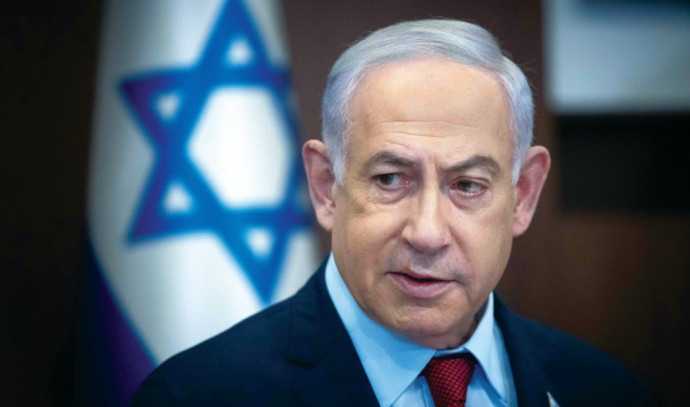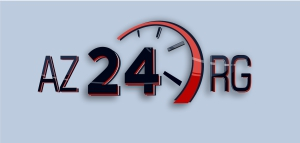Growing incitement against Netanyahu reaches frightening levels

The silence regarding the crazy incitement campaign against Prime Minister Benjamin Netanyahu is deafening. It is a campaign that is conducted based on the media’s intentional blindness, the opposition’s indifference, and the legal advisor’s apathy to the government.
Is Benjamin Netanyahu in danger? Probably not, and not necessarily because no one wants to harm him. Anyone who sees the hatred, the disgust, and the burning emotions in the protests against the prime minister can imagine easily what would happen if one of the protesters found themselves in his midst without security. But Netanyahu has security, and since the Rabin assassination, the security of the prime minister has been greatly strengthened. Therefore, the possibility of harming Netanyahu is low to nonexistent.
I tried to imagine this week what would happen if, God forbid, a prime minister was assassinated again. Would we see the studios reminding us, as they have in the past, of the prior incitement? Would we hear presenters and analysts accusing the person who called him a “traitor”? The one who compared him to Hitler? The one who said his end will be like Marie Antoinette’s and Louis XVI’s? The one who threatened him with lynching?
Spoiler: No. In all of these scenarios, the studios will be filled with those who will explain to us who is guilty. Yes, even in his death, he will be guilty. The slogan “he deserves it” will hover above the microphones. “He is the one who incited, he is the one who instigated, he is the one who misled, and it turned against him,” they will explain. Netanyahu is not exactly the unifying model. And it’s a shame.
Yitzhak Rabin – who called the residents of Judea and Samaria a “cancer” and mocked them for living in “Ariel, Emmanuel, and Shlomiel,” was not exactly the national glue either. And yet, it didn’t make the words against him more appropriate and less objectionable. The incitement against Netanyahu, which is growing day by day and has reached frightening dimensions, is more difficult in every respect than it was against Yitzhak Rabin, for three main reasons.
First, the most severe incitement against Rabin mainly came from the masses, from the territories, from people nobody knows, while against Netanyahu it comes from the elites. Second, the incitement against Rabin was highlighted by the media and criticized endlessly, while that against Netanyahu is careful not to report at all. And third, after the assassination of Rabin, Israeli society underwent an educational succession.
They taught us that “words can kill.” They taught us that it is forbidden to say “traitor.” They taught us not to compare a Jewish political leader to a Nazi. They taught us how evil incitement is. After that lesson that we all received, it is easy to discern that the same media that explained what is allowed and what is forbidden, what is within the boundaries of permissible discourse and what is beyond it, decides that some are subject to these rules and some are not.
Where does this claim practically take us? After all, parallel to this, we had many more left-wing people who collaborated with the enemy than right-wing people. So what do we do with this information? Do we argue that if I, Kalman, establish contact with the Iranian embassy, it can be ignored because I am a right-winger and therefore the risk reflected from me is low? The rules must be clear and simple. If incitement is a bad thing, it is a bad thing whether it comes from the right or the left.
It is important to clarify that I am not claiming that incitement only comes from the left. Not at all. I am not ignoring Likud MK Nissim Vaturi, who recently said, “There are several arms of Hamas – the fighting arm of the cursed terrorists who murder children, and there is the arm of the protests.” I am not ignoring former Likud MK Moshe Meron, who in the past organized posters saying “Leftists are traitors.” I am not ignoring others, either.
When these words come from the right, every TV viewer is exposed to them, and every radio listener receives an explanation of how dangerous and terrible they are. The big difference is that neither Vaturi nor Meron will be treated in the news as crazy. Brigadier General Eyal Magad, Colonel Guy Tzur, Ehud Barak, and Sima Kadmon, even after the most severe incitement from them, will continue to receive respectful treatment from decent and legitimate people.
A few weeks into the war, I passed by the Finance Ministry, where until today there is a protest tent defined as “the tent of the families of the kidnapped.” Suddenly, I noticed a large sign, printed in red letters on a white background, hanging above the pictures of the kidnapped: “Bibi is a Traitor.” This was not a sign that someone painted on the spur of the moment. This was a sign that someone ordered from a print shop.
I remembered that in the past, when similar phrases were directed at politicians from the “right” side of the map, they opened up new editions of the news. Since there is not a day that we do not pass between the Knesset and the prime minister’s office, where crowds of journalists gather, I wondered how it was possible that none of them thought that sign was worth mentioning. I turned to those who influence news broadcasts and made a great effort to get someone to report on this sign. I failed. “Bibi is a Traitor” didn’t interest anyone.
It’s interesting what can occur under the radar without leaving a meaningful media and public stamp. A few days ago, Yishai Friedman uploaded a video on Channel 14, showing Ayala Metzger, whose father was kidnapped and murdered by Hamas. Metzger stood in a demonstration in front of the Netanyahu family’s house in Caesarea and declared that if all the kidnapped are not returned, “we are waiting with a hanging noose. That’s what you deserve, a hanging noose.” She promised to hang the Netanyahu family, and the large crowd approved.
We will continue to be reminded of the time Benjamin Netanyahu, who was at the Ra’anana junction at a demonstration 30 years ago, next to a coffin. They will accuse him of being indifferent to talk of the death of the prime minister, even though that coffin spoke of the death of Zionism and not of Rabin’s death.
But today, talk of a hanging rope waiting for Netanyahu and Sara fails to wake the reporters from their midday naps. And since I saw reports from this demonstration, it is clear to me that Yishai Friedman was not the only journalist who heard them. He was just the only journalist who thought it was worth publishing them. What does that say about the rest?
Here is another example. Eyal Megged is a writer. A man of culture. A man of words. Two weeks ago, he published an article in Haaretz under the title “Benjamin Netanyahu is our greatest enemy. Our sacred duty is to remove him.” According to him, Sinwar is our enemy, Nasrallah is our enemy, but Netanyahu surpasses them both. He is “the greatest enemy.” And how exactly are we supposed, according to Megged, to fulfill our “sacred duty to remove him”? It is not clear. Megged leaves that to our imagination.
In a speech at a protest in Haifa, Megged continued on a bit more. Netanyahu, he explained, is “the greatest tyrant that has risen against us, a tyrant that can be compared to any tyrant that comes to mind, without exception.” Megged uses the word “tyrant,” a word that until now was reserved for Adolf Hitler. Hitler and Netanyahu, one and the same.
What makes this event even more psychotic is that when Megged stands on the stage and reads these texts from the paper in his hand, the crowd below him stands and cheers enthusiastically. When this large audience chants, in rhythm and with enthusiasm, “Traitor, traitor, traitor,” Megged pauses for a moment, not to disturb these chants, before he continues.
A few days earlier, an interview with actress Renana Raz was posted on social media, conducted by researcher Stav Shapira, in which Shapira defined Raz as “an amazing multidisciplinary creator.” In a calm, peaceful, and quiet conversation, like a normal and legitimate conversation, Raz explained.
“I think this will only end in violence…I feel that the people who are currently in power and have fought their way to the top are very, very violent people, and they will not just wake up tomorrow morning and say, ‘Oh, okay, we understand that you don’t want us here, so goodbye.’ It won’t happen…they’ll have to break it violently…all the solutions we tried won’t happen. It simply won’t happen. Something very extreme will have to happen…it’s not a choice. There simply won’t be an alternative.”
Nahum Barnea reported two weeks ago in his column that “in the past few weeks, I heard someone say ‘now I understand Yigal Amir, Rabin’s assassination,’ that was very unnecessary.” Barnea, according to his testimony, is disillusioned.
Further, Ami Dror, who was defined as “one of the leaders of the protests against the government”, stood in a demonstration and called out to Netanyahu, “The man is a devil…we will destroy his house in Caesarea and build a park on the land, we will fill his pool with concrete. We will erase the memory of Netanyahu.” Ehud Bar-Nur, a Brothers in Arms activist, spoke at the demonstration and asked Netanyahu publicly, “Are you the real enemy, or is Nasrallah the real enemy? I tell you, you are.”
Reservist Guy Tzur said in front of the crowd, “Netanyahu is a traitor.” Dr. Yolanda Yavor received a flattering front-page article in Yediot Aharonot, an article that received the title They Will Not Stop Her after she called Netanyahu ‘the traitor and Oppressor.’
All of this has developed in recent days. In February, pilot Zeev Raz said about the prime minister that “he deserves to die” (later, he retracted, deleted the post published on the matter, and clarified that he does not identify with the things he copied from someone else).
The great power of journalism
There are many appalling examples, and it is quite amazing how none of them widely catches the attention of the news. There has not been a discussion on incitement and its dangers. No one stops to ask if the discourse has gone too far. Forget the police, forget criminal proceedings, just talk about it.
I have explained countless times here, from the first lesson in communications, that the great power of journalism is not in expressing one opinion or another but in deciding what to report on and what not. What is worthy of extensive coverage and what can be ignored, what is appalling, and what is provocative? And why am I mentioning all this?
For years, there has been an ironclad journalistic rule. Every tweet against “the right people”, from the right political side, with the right ideological perception, inflated to the level of dangerous incitement and was jumped to the front page. Every similar statement against “the enemies” received widespread disregard.
There are plenty of examples of this. When the former president, Reuven Rivlin – who was the media’s darling and Benjamin Netanyahu’s great rival – decided not to grant a pardon to Elor Azaria, the media quickly pulled a picture of Rivlin with a target on his head from the internet.
This picture had circulated there two years prior, and we all found ourselves once again in the “incitement” dance. Netanyahu announced that the picture was not acceptable to him, and the police announced that they were investigating incitement. Journalist Oded Ben-Ami sat on his show and read ugly statements against the president as if he had just encountered the internet for the first time. Knesset members embarrassed themselves by posing with posters that read “standing by the president,” as if the next moment, the right-wing mob would rise against him with their tanks and destroy him.
And Rivlin was not alone. Former Defense Minister Bogie Ya’alon also enjoyed such an “incitement campaign” after a large part of the public criticized his premature exit from the Azaria affair. A picture someone shared in a WhatsApp group, where Ya’alon is seen against a backdrop with the words “political assassin,” immediately turned into a discussion about the violence in the air.
There was not a single journalist who dealt with this “incitement” and did not know it was a heated issue. But it fit the media and fit Ya’alon, who flourished from the situation. “I will not raise my hands and will not be scared by any threat,” he stated as if someone had even threatened him at all.
There have been posts in which Transportation Minister Miri Regev was seen wearing an SS uniform and in which former Minister of Interior Ayelet Shaked was seen with a Hitler mustache. When Netanyahu’s government was still in power, they never managed to capture the media’s attention like these absurdities.
Why? Because our press was interested in portraying Rivlin and Ya’alon as victims, along with Regev, Shaked, and Netanyahu, even if the threats and incitement against them were a million times greater than any criticism against the former president or former defense minister, no journalist was interested in giving them that moment of grace.
This is also taught in the first lesson on communications. Placing a public figure in a position of being attacked, in a position of a victim of incitement, gives him points in the public eye. And since no journalist is willing to give Netanyahu this gift, they prefer to ignore the wild incitement against him.
I still remember what happened here a few years ago, when High Court of Justice judge Anat Baron received one threatening letter, in which, according to what was published, said, “You paid hard prices in the past, expect punishment.” What a media frenzy this letter caused. As if it was the first of its kind.
Newspaper headlines, radio, and news channels dealt with this one letter as if we had never encountered its likes before. The justice system was once again presented as a victim. Right-wing people and Netanyahu supporters were once again portrayed as unscrupulous villains.
Because, as we explained, there is no motivation in and of itself. In the past, there has been a series of terrible threats against politicians, threats that no one had heard of. A letter was sent to Bezalel Smotrich in the following text: “Tell your wife to buy a black dress for the funeral. We are eight men coming from the USA to take you off the ground…you will die. We will kill you. You’re a dog with a yarmulke.. one day, they will kill you, burn you and your family…we know where you live…you are like Nasrallah, you need to die.”
Similar letters were sent to David Amsalem in the style of “We will cut your tongue. We will kill you. Take care of neutralizing him, just like a terrorist, a bullet to the head”. Why didn’t you hear anything about these death threats? For the same reason, you did not hear anything about the call this week to hang up Benjamin and Sara Netanyahu. Because journalists who heard this call at a demonstration in Caesarea did not think it was newsworthy.
I still remember the pathetic effort to invent a provocation that didn’t exist following one post uploaded by Channel 20 (formerly Channel 14) regarding President Rivlin, yes, him again, after deciding to participate in the Haaretz conference alongside a representative of the Breaking the Silence organization.
Channel 20 wrote that in the president’s office “they lost their shame” and Rivlin’s presence at the conference was “an embarrassment to the president’s office”, “returning to the days before the assassination of Rabin”, and “there are enough fanatics who are influenced and could assassinate him”.
According to Walla, Channel 20 “launched a campaign that includes incitement and vulgarity on Facebook”. The IDF reported on a “broad propaganda campaign”. Channel 2 reported on a “vicious campaign”, and Channel 13 announced, “Tonight a line will be crossed in Israel”.
Take this nonsense and the way it is inflated and compare it to what is happening today. Crowds cheer on the protest stages, calling for Netanyahu’s hanging. How is it possible that the wild incitement of recent days is not mentioned in the news?
It is embarrassing to remember the countless hours we spent analyzing an A4 page with Rabin’s image in SS uniform. We delved deeply into the question of who saw this page from the balcony on Zion Square and who did not, when today, a newspaper can publish, simply and clearly, that Netanyahu is Adolf Hitler or worse than him.
How incomprehensible to recall how many times they explained to us that “traitor” is a terrible word, a real blood libel, halfway to murder, when today this term is pulled out in front of a cheering audience and on news channels that are not Channel 14, there is not one editor who thinks it is worth mentioning.
As mentioned, the big difference between today’s incitement and the incitement that preceded Rabin’s assassination is not hidden in the type of expressions but in the identity of the speakers. In Rabin’s days, almost all incitement came from extremists who had no influence on anyone, and it was doubtful if anyone had influence over them.
With Netanyahu, we are talking about the cream of the crop. Journalists, intellectuals, academics, cultural heroes. They stand on stages, facing the crowd, in front of the cameras, inciting their audience to applaud them enthusiastically.
Each of them is a potential distinguished guest on television programs. And no one sees them as persona non grata. No one refers to them as detestable individuals. Television channels that cover the events they are involved in spread these slanders. Journalists are equipped, it seems, with sophisticated microphones that can filter out the incitement, without which it is impossible to understand how nothing from all this uproar reaches us in the living room except through the channel of Yishai Friedman from Channel 14. In town squares, in protests, and in newspapers.
It doesn’t matter what the chances are that someone will succeed in harming the prime minister. We don’t need to go that far. There is enough boundary-less talk for us to know that we are already in a place that has crossed the line. The blood of Prime Minister Benjamin Netanyahu is permitted. Uzi Vogelman is silent. Gali Baharav-Miara is silent. Benny Gantz is silent. Yair Lapid is silent. The media are silent. No one cares. No one moves. That’s the bottom line. And it’s dangerous. Not for Benjamin Netanyahu. For all of us.
Kalman Liebskind (email protected)





